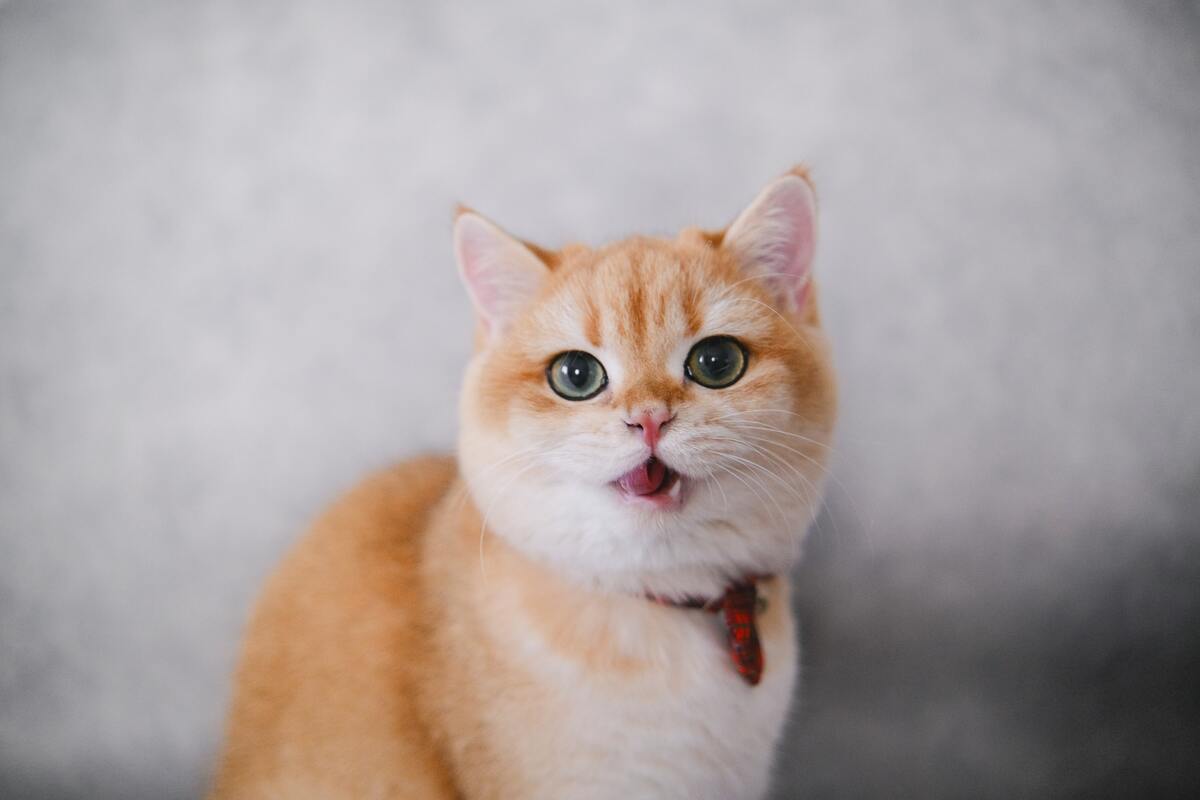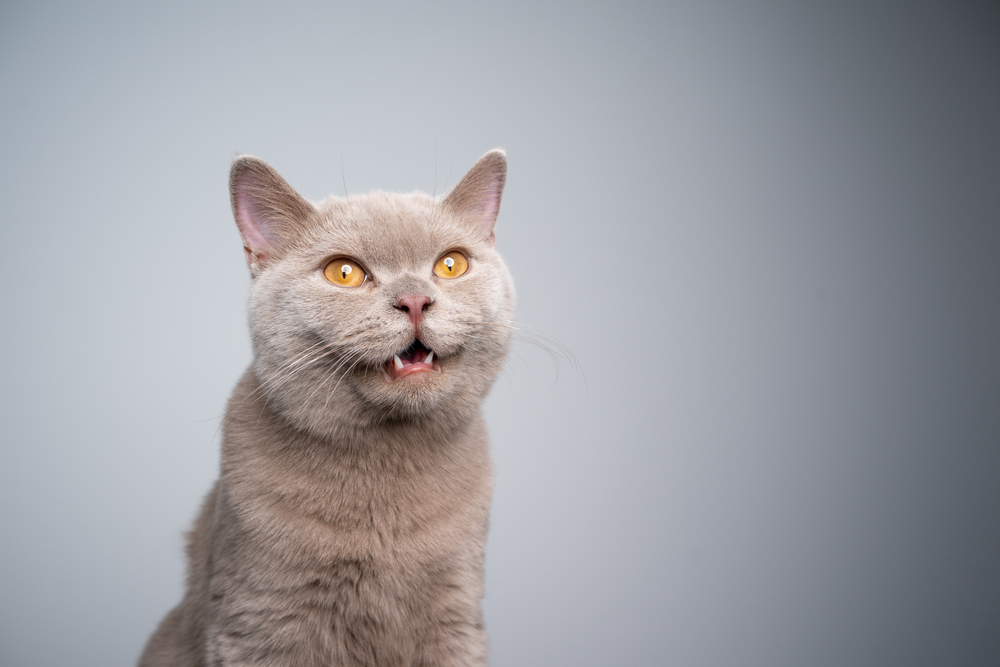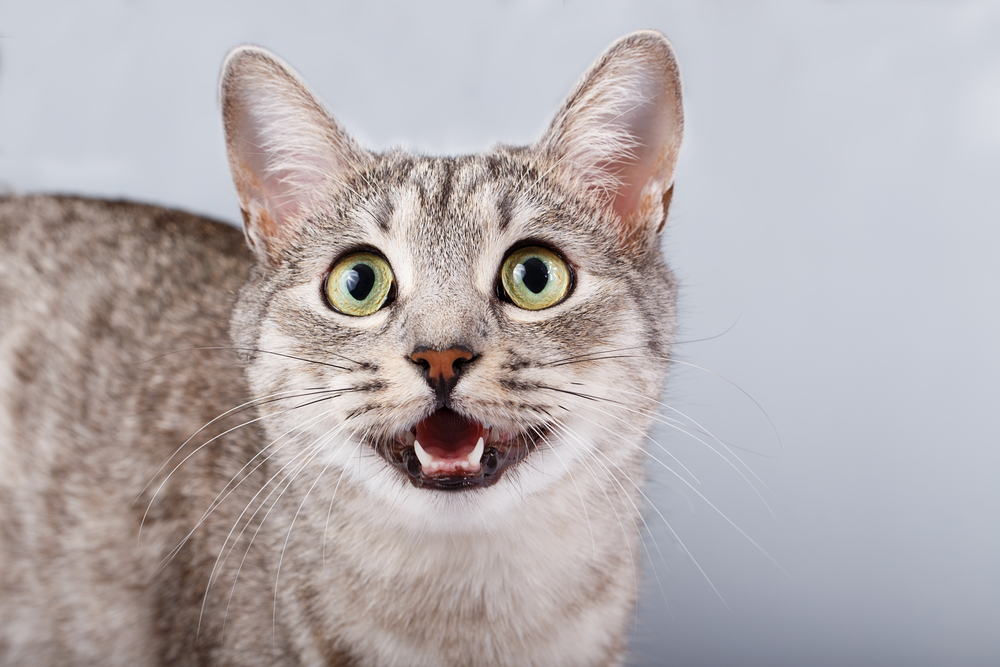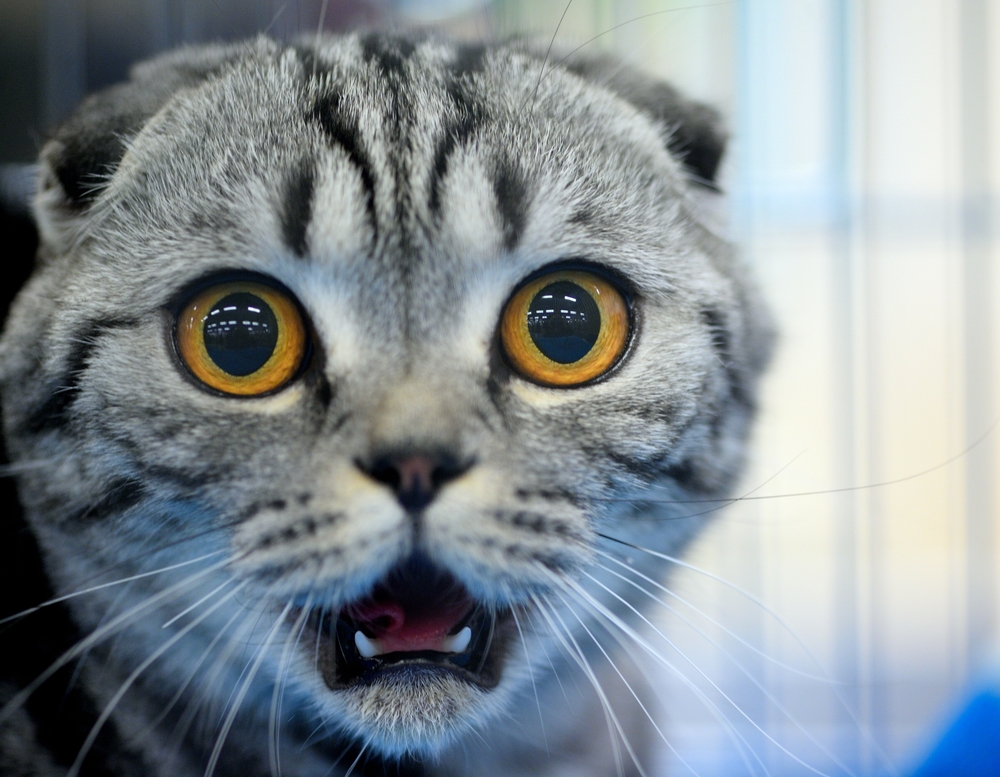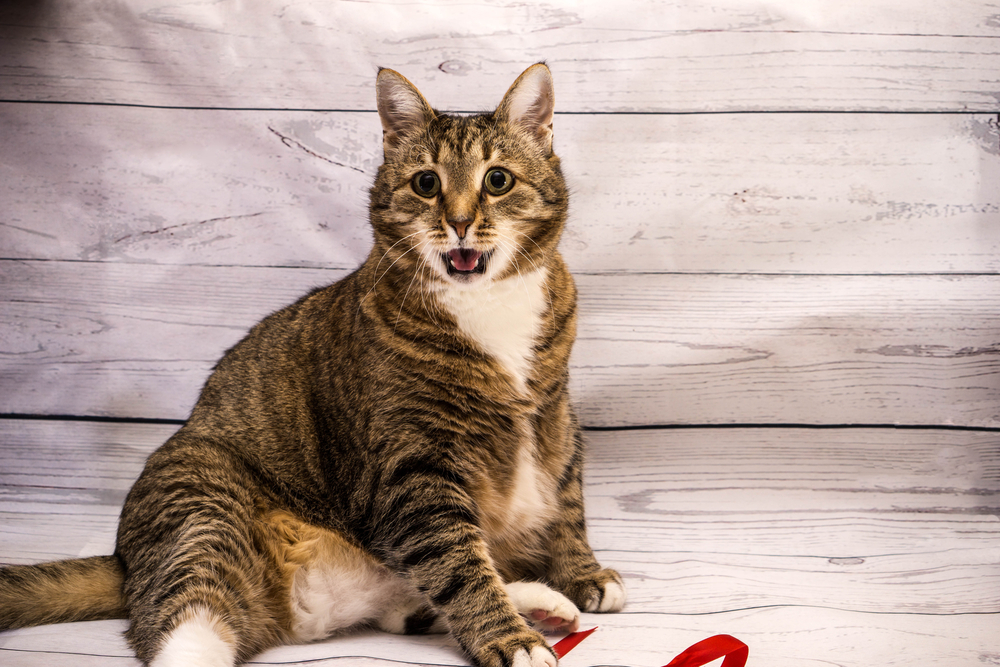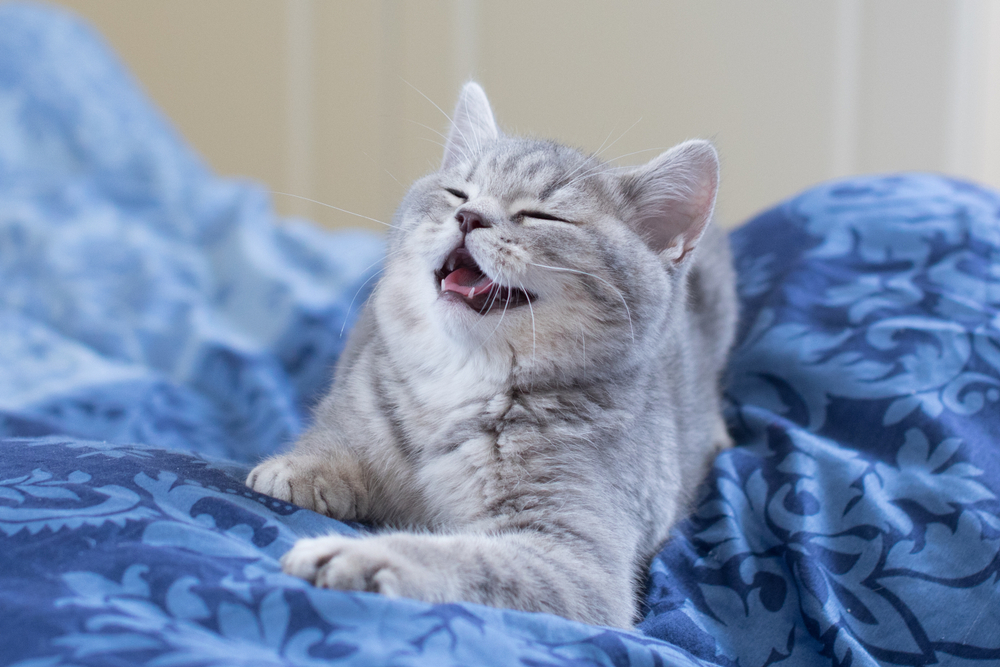📖 Table of Content:
You’re sitting on the couch, minding your own business, when suddenly, you look over and see your cat making weird mouth movements. At first, you probably couldn’t help but laugh, but then it made you wonder: is something wrong with her?
Is she whispering in her secret cat language, or is there something stuck in her mouth? You’ve seen her do it in all sorts of situations, after mealtime, during play sessions, while she’s looking at birds outside of your window… But now, you notice how often it happens, and you need to know why.
Well, that’s precisely what makes you such a great cat parent! You want to know everything that’s going on with your fluff, and it’s good that you’ve decided to do some research on this, too.
Keeping a journal and noting down the situations in which your cat is making weird mouth movements would be of great help. Is it after mealtime, when she’s being playful, or at totally random periods of the day? This could help you get a better understanding of this seemingly adorable behavior.
However, if you don’t have time to do all that work, don’t worry. We’re here to help you understand your fluff’s body language, so both of you sleep better at night. Are you ready to learn more?
Cat making weird mouth movements: 5 possible reasons
You’re probably wondering, “What on earth is going on here, and why is my cat making weird mouth movements?” Well, I’m here to tell you that there are many possible reasons behind this sweet, yet strange behavior.
If your cat’s mouth behavior seems excessive or out of the ordinary, it may be worth a trip to the vet to rule out any underlying health concerns. We all want our fur babies to be happy and healthy, after all!
In case you think it’s not that serious, but you’re still curious about why it happens, you came to the right place. Listed below are some of the most common reasons why this happens, and we’ll go through them together.
1. The adorable cat chatter
You won’t believe the strange and quirky things our cats get up to. One of my absolute favorites has to be the infamous cat chatter! Your fluff’s suddenly making rapid chewing motions, even though there’s nothing in her mouth. She even throws in a high-pitched chirping sound to make it even more adorable!
It turns out that, when cats chatter, they’re in the zone – totally focused on any kind of prey they’re eyeing. It’s like a combination of excitement, frustration, and anticipation. Who would’ve thought that a little bird she’s watching through the window could cause all these emotions?
As odd as this chatter may seem to us, it’s far from uncommon. It’s not something you’ll witness your cat doing every single day, but it kind of makes it even more special, doesn’t it?
Did you know that not even scientists are entirely sure why cats do the chatter? Sure, they’ve got some theories, but they’re still just that – theories. The most common explanation floating around is that it’s a kind of frustration or excitement response triggered when cats spot their prey outside the window.
Some folks have even suggested that cats are chattering to mimic the sounds of the very birds they’re trying to catch. Now, that might sound a bit out there, but get this – scientists found a wild cat in the Amazon rainforest actually doing that. Our feline friends are full of surprises!
2. She’s trying to smell something
One normal and harmless explanation behind your cat making weird mouth movements is that she’s just trying to get a good whiff of something interesting.
You see, cats usually do their sniffing through their noses, like any normal pet would. However, when they come across something extra intriguing, they bust out the big guns – the Flehming Response!
We’ve probably all seen the memes of cats doing the “stink face” and this is it! It’s definitely one of the silliest things you’ll ever witness your furry friend do, and I truly hope you get a good photo of it.
But here’s the science behind this hilarious facial expression. Cats have these special sensory cells on the roof of their mouth, called Jacobson’s organ. Fancy name, huh?
Odor molecules stick to these cells and then they send signals to the brain, telling our feline friends exactly what they’re smelling. Okay, but how does that explain her opening her mouth? Well, those odor molecules can only reach the Jacobson’s organ when our feline pals open their mouths and make these funny facial expressions.
Don’t worry, my dear cat parent, it’s all harmless fun. Cats usually reserve this odd mouth movement for sniffing other cats, or if they come across something super stinky, like the trash or your old smelly shoes…
3. She may have something stuck in her mouth
Ever had that annoying feeling of food stuck in your back teeth and, no matter how hard you try, it just won’t budge? Well, guess what – our furry friends can experience the same problem! You may be surprised to know this happens more often than you’d think.
Cats have their diets and habits that could lead to some toothy troubles every once in a while. Whether they’re outdoor adventurers who’ve caught themselves a tasty bird with feathers or tiny bone fragments, or they’re indoors enjoying a bowl of kibble, there’s a chance something could get stuck.
Now, if your cat starts doing some funky mouth movements, like trying to open her jaw or rubbing her paws over her mouth, it might be a clear sign that something is stuck. Don’t worry, though. In most cases, those little troublemakers tend to dislodge themselves within a few hours or days.
However, we need to be extra careful about larger objects that could cause real trouble. If something gets in your fluff’s throat, it may mess with her breathing, which is something you definitely want to avoid.
If you’re worried at all, don’t hesitate to seek veterinary help immediately. A trip to the vet can save the day! They’ll be able to remove the foreign object from your kitty’s teeth or mouth, preventing any potential complications.
And if it’s stuck in the gums, no worries –-the vet can take care of that too, ensuring a smooth recovery without any nasty infections.
4. She may be suffering from gingivitis
If you’ve noticed your kitty pawing at her mouth, drooling, and making weird movements, there’s a possibility she may be dealing with gingivitis. Yeah, it’s not a fun situation at all. For her and you.
Gingivitis happens when nasty bacterial plaque builds up on your fluff’s teeth, causing the gums around them to get all inflamed and irritated. Yes, it’s painful as it sounds.
Over time, that plaque hardens into something called calculus, and both plaque and calculus can cause severe gum irritation. The gums become red, swollen, and pretty painful. It’s like a dental nightmare for your kitty, and you might notice her losing interest in her favorite meals, too.
However, I have some good news for you – gingivitis is often preventable with a regular brushing routine. Yep, just like us, our cats need some dental care, too! However, even with proper brushing, some cats may still end up dealing with gingivitis at some point in their lives.
As they get older, they become more prone to this annoying condition. But, if your kitty’s gingivitis is in the early stages, brushing her teeth a few times a week may do the trick. If the situation is a bit more serious and the brushing alone won’t cut it, your veterinarian will be there to save the day.
5. Trauma
If it’s not dental conditions, then there’s a high chance your fluff may have had an injury that caused her to make weird mouth movements.
Listen, it’s not just outdoor cats that are at risk. Even our indoor furbabies can have a fair share of accidents that result in mouth trauma. You know how cats can be curious explorers, and sometimes, their chewing habits might accidentally cause a tiny cut or wound in their mouths.
Because both dental disease discomfort and trauma reactions can look pretty similar, it’s best to consult a vet and get a proper diagnosis instead of playing a detective yourself. The sooner you find out the reason behind this behavior, the quicker you’ll find a way to help your dear fluff.
Remember, our cats can’t speak to us in words, so it’s up to us to pay attention to their behavior and get them the help they need when something seems wrong. Their body language can tell us everything we need to know, we just have to learn how to understand it.
From dental issues to mouth trauma, our feline friends deserve the best care, and we’re here to be their heroes, protecting them from any discomfort that may come their way. After all, we all want the world for our fluffs, and we’ll do everything in our power to help them live a happy life.
